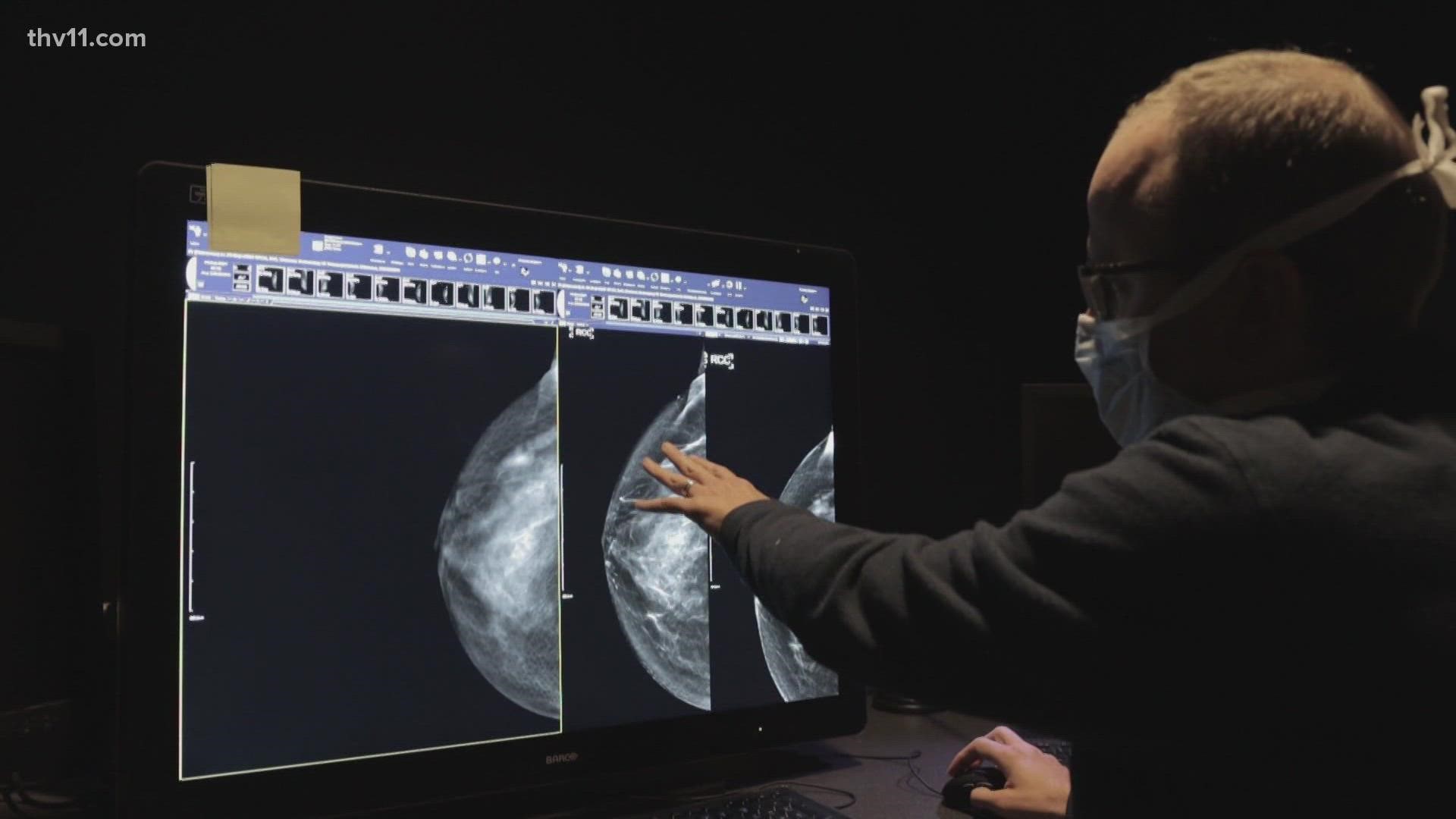BENTONVILLE, Ark. — Did you know that one in eight women will be diagnosed with breast cancer in their lifetime?
October is Breast Cancer Awareness Month and the U.S. Preventive Services Task Force now recommends women start getting regular mammograms at age 40 rather than the previous age of 50.
Though the risk of death caused by breast cancer has significantly decreased over the years, studies find that younger women are being diagnosed with breast cancer.
Dr. Christopher Pittman at Northwest Medical Plaza says younger women in America are developing breast cancer now because of a decrease in physical activity and an increase in overeating unhealthy processed foods.
“There are lots of people in their 40s that get breast cancer, and checking early can save lives,” Dr. Pittman said.
He says every woman in her 40s should be getting biannual mammogram screenings. A mammogram is an x-ray picture of the breast tissue that can detect cancerous cells up to two years before a tumor is even felt by a doctor.
"The normal course of action is you start with a mammogram, the screening mammogram, and if it's abnormal, they'll bring you back for additional pictures, which is called a diagnostic mammogram. And then also we'll get an ultrasound of that area. Depending on what that shows," he adds.
Results from mammograms can be a coin toss.
"Sometimes those reports come back and we go, 'man, everything's great, we're good. We don't have to do anything.' But sometimes it comes back saying, 'we're not exactly sure,' or 'that tissue does look concerning. Let's go ahead and get a biopsy,'" Dr. Pittman said.
One very large misconception is you can only get breast cancer if it runs in the family. However, most cases of breast cancer are not genetic. Most cases are people who don't even know that they have a family history.
But if breast cancer does run in your family, genetic testing as soon as possible is highly recommended.
Dr. Pittman says this is called bracket testing. "That is very, very important in people who have a known family history of breast cancer, especially at a young age and a close relative,"
The CDC says keeping a healthy weight and exercising, avoiding alcohol or drinking in moderation, and breastfeeding your kids if you can are all ways you can reduce your risk of developing breast cancer.

